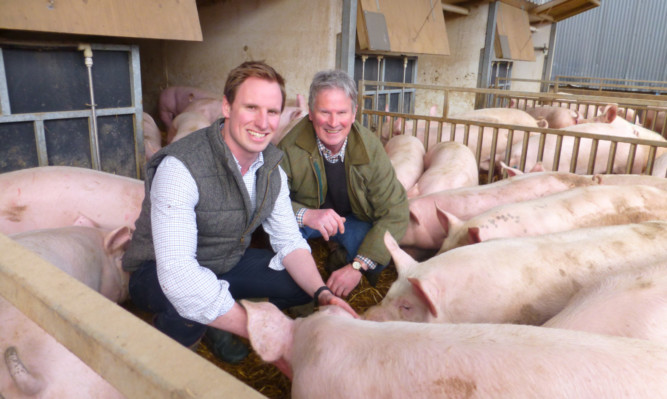One of Scotland’s most successful artisan pig-meat producers has accused British supermarkets of duplicity in making up farm names to fool customers into thinking they are buying local rather than imported food.
Tom Mitchell, founder of Puddledub Pork a company which breeds, processes and markets around 2,500 pigs a year on Clentrie farm near Auchtertool in Fife said the practice, which was uncovered last week, is “unforgivable”.
“It’s corrupt, unfair, sneaky and unpleasant and, because they are big, they get away with it,” he said.
“The supermarkets push their prices down as they use cost as a means of getting footfall, and that means driving down the price they pay the primary producer. Yet again the supermarkets are the bogeymen.”
Mr Mitchell founded Puddledub in 1999 after a difficult period for the pig industry.
He started the business by processing just one pig a week and has built up to the current 30-40 a week by adding an on-farm butchery, smokehouse and bakery.
The Puddledub range of bacon, pork, ham, pies, sausages and black puddings is sold online and is also a familiar sight at farmers’ markets and in farm shops across the country.
However, Mr Mitchell says that diversifying into processing rather than producing for the commodity market isn’t an obvious step for every business.
“It has been hard,” he said. “We started small and added value, which made a significant difference to the bottom line, but starting from scratch on a big scale would be more difficult. You’d be in competition with big, strong farming businesses, so you need to grow it.”
Mr Mitchell’s son Peter, 28, has just returned to the farm to join the business after working as a stockbroker in Canada and London.
He is keen to develop the brand and says Puddledub’s traceability is a strong selling point, in comparison to the false farm names created by supermarkets.
“We do everything ourselves. We breed and rear the animals, we have them killed in a local abattoir, and we use the grain and straw that is grown on our own farm,” he said.
“We are able to prove what we say we are doing, so can guarantee the provenance. And we will remain true to our roots. We do things the traditional way, like hand-cutting bacon and hand-linking the sausages.
“That way we end up with a product that is true to the texture and flavour of real food. It’s honest and it tastes the way food should taste.”
